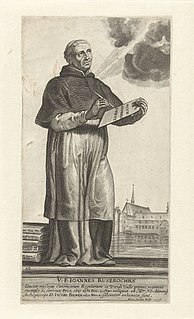A Quote by Ariel Dorfman
I think to be in exile is a curse, and you need to turn it into a blessing. You've been thrown into exile to die, really, to silence you so that your voice cannot come home. And so my whole life has been dedicated to saying, 'I will not be silenced.'
Related Quotes
Probably all of us, writers and readers alike, set out into exile, or at least into a certain kind of exile, when we leave childhood behind...The immigrant, the nomad, the traveler, the sleepwalker all exist, but not the exile, since every writer becomes an exile simply by venturing into literature, and every reader becomes an exile simply by opening a book.
Dalai Lama has made new opportunities for women that they never had in Tibet, introduced science into the monks' curriculum and had Tibetan students in exile take their classes in English after the age of ten so that they will know more about the outside world. But one of the great things he's done is to bring all the Tibetan groups together in exile, as perhaps they couldn't have been when they weren't in exile and they weren't under such pressure.
The Internet has been a blessing and a curse. The curse we know: A lot of people appropriating your intellectual property without paying for it. But I think it's important to realize the blessing of the Internet, which is that everybody has a voice and you can break through, even without a record company.
I will tell you what I will do and what I will not do. I will not serve that in which I no longer believe, whether it calls itself my home, my fatherland, or my church: and I will try to express myself in some mode of life or art as freely as I can and as wholly as I can, using for my defense the only arms I allow myself to use -- silence, exile, and cunning.
There are different qualities of silence. There's the silence that sustains us, as women, that nourishes us, the silence where I believe our true voice, our authentic voice, dwells. But there's also the silence that censors us, that tells us what we have to say does not want to be heard, should not be heard, has no value. And that if we speak, it will be at our own peril. This kind of silence is deadly. This kind of silence is deadening to who we are as women. And when a woman is silenced, the world is silenced. When a woman speaks, there is an opening.
exile is strangely compelling to think about but terrible to experience. It is the unhealable rift forced between a human being and a native place, between the self and its true home: its essential sadness can never be surmounted. And while it is true that literature and history contain heroic, romantic, glorious, even triumphant episodes in an exile’s life, these are no more than efforts meant to overcome the crippling sorrow of estrangement.
This silence, this moment, every moment, if it's genuinely inside you, brings what you need. There's nothing to believe. Only when I stopped believing in myself did I come into this beauty. Sit quietly, and listen for a voice that will say, 'Be more silent.' Die and be quiet. Quietness is the surest sign that you've died. Your old life was a frantic running from silence. Move outside the tangle of fear-thinking. Live in silence.






































